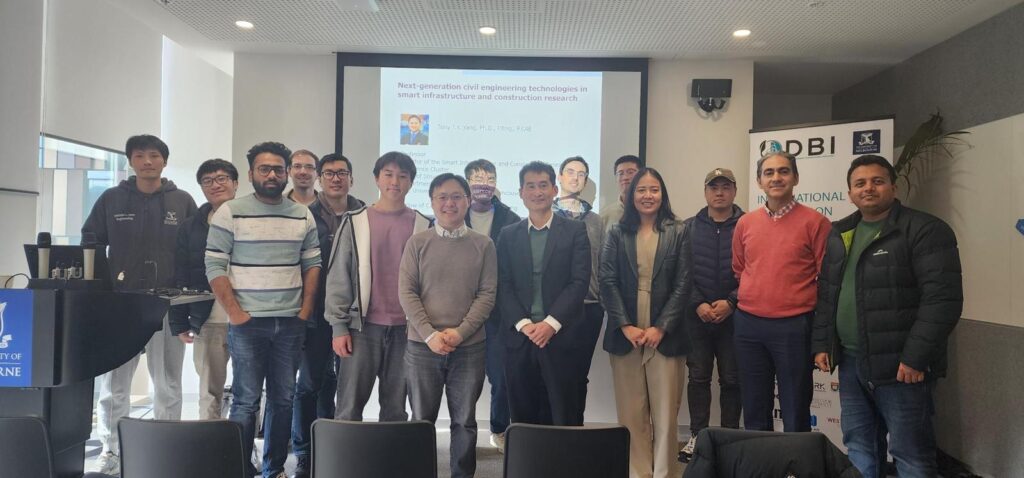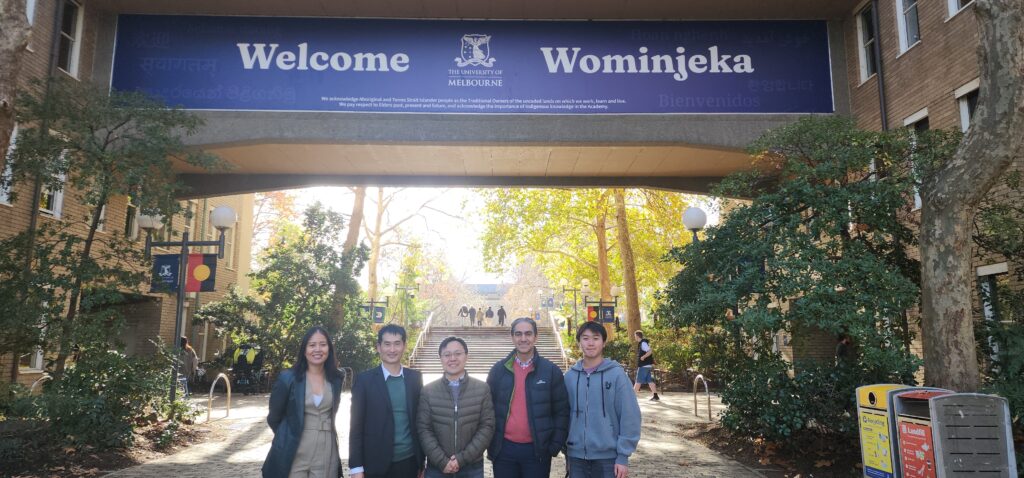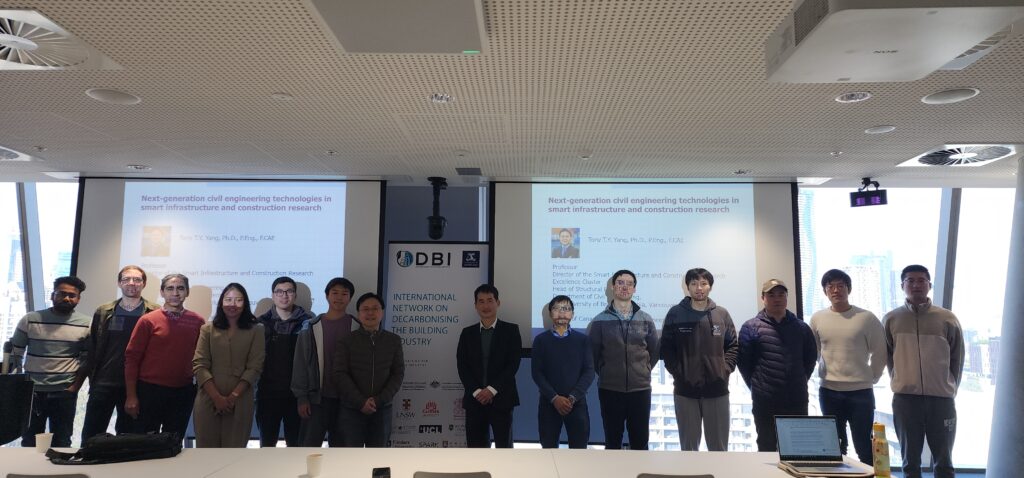On his recent Visiting Fellow trip to Melbourne, Professor Tony Yang from the University of British Columbia (UBC) delivered an engaging seminar hosted by the Decarbonising the Building Industry (DBI) network. His presentation, titled Next generation of civil engineering technologies, explored cutting-edge approaches to building smarter, more resilient infrastructure while tackling global challenges such as population growth, carbon emissions, and natural hazards.

A legacy of expertise
As a fellow of the Canadian Academy of Engineering and a global leader in structural and earthquake engineering, Professor Yang brings extensive experience to the field. Based at UBC – one of the world’s top universities – he serves as director of the Centre of Excellence on Smart Infrastructure and Construction Research. His work spans innovative seismic designs, performance-based engineering, and collaborations with industry on landmark projects. This visit to Melbourne marked an opportunity to share synergies with the DBI network and foster future partnerships.
Addressing global challenges in civil engineering
Professor Yang’s talk highlighted the pressing issues facing the construction sector and outlined innovative solutions developed by his team:
Population growth and construction demands: With the global population projected to reach 9.7 billion by 2050, the United Nations estimates a need for 2.1 trillion square feet of new construction – equivalent to building a city the size of Melbourne every month for the next 25 years.
Carbon emissions and environmental impact: Civil infrastructure accounts for 40% of global carbon emissions. Professor Yang stressed the need for carbon-neutral building practices to avoid exacerbating issues like rising sea levels in coastal cities such as Melbourne and Vancouver.
Infrastructure deterioration: In North America, many post-World War II structures are nearing the end of their design life, requiring trillions in investments for repairs and upgrades.
Natural hazards: Annual economic losses from disasters like earthquakes and windstorms average $152 billion, underscoring the urgency for resilient designs.
To meet these challenges, Professor Yang’s research focuses on technologies that enable faster, smarter, and more resilient construction.
Key innovations and their impact
Professor Yang showcased several ground-breaking developments from his lab:
Modular and robotic construction: His team is advancing modular techniques, including robotic assembly for high-rise timber structures. A notable project involves a 30-storey hybrid timber-steel system with internal steel elements for strength and fire resistance, assembled by robots to reduce reliance on skilled labour and speed up construction to multiple storeys per day.
Seismic-resilient designs: Innovations include damage-free concrete core walls for high-rise buildings, tested on a massive shake table in Shanghai. A one-fifth scale model (six storeys tall) withstood 120 major earthquakes without damage, using energy dissipation devices and uplifting mechanisms.
Advanced materials and systems: From self-centring shear walls to high-performance envelopes that cool buildings naturally without electricity, these technologies enhance energy efficiency and structural performance.
AI and robotics integration: AI algorithms enable real-time inspections via drones and ground vehicles, identifying defects and providing reports. Map-free navigation allows autonomous exploration in post-disaster or construction environments. Digital twins and 5G/6G networks support smart construction, while outdated smartphones are repurposed for 3D scanning and modelling.
These tools are influencing building codes in Canada and the US, with Professor Yang and his UBC colleagues playing key roles in seismic design standards.
The DBI network aims to create resilient, low-carbon built environments. Professor Yang’s work aligns closely by promoting technologies that reduce carbon footprints through efficient materials like timber, minimise waste via modular methods, and enhance durability to lower long-term emissions from repairs. By integrating AI and robotics, these approaches also address labour shortages and construction delays, supporting faster delivery of low-carbon infrastructure.

The seminar sparked lively discussions on potential collaborations between UBC and Melbourne researchers, from modular construction to AI-driven inspections. As cities like Melbourne continue to grow amid environmental pressures, adopting these technologies will be essential for resilient urban development.
We extend our sincere thanks to Professor Tony Yang for his valuable insights and to the University of Melbourne for hosting this event. The DBI network welcomes opportunities to advance these ideas through joint research.

